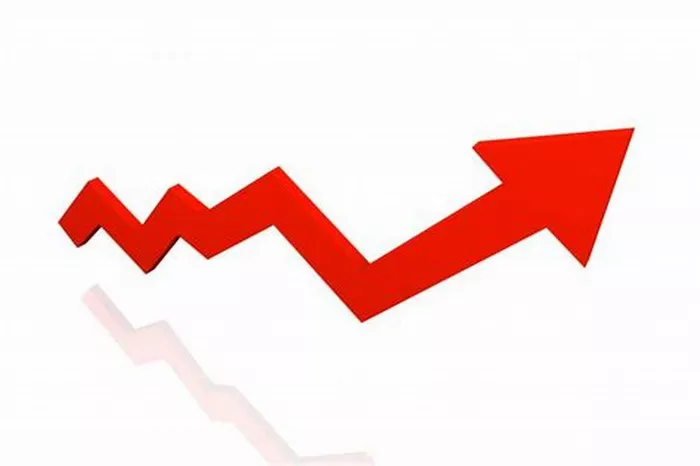Investing in healthcare stocks can often seem like a safe bet due to the consistent demand for medical services and innovations. However, like any other sector, healthcare is not immune to market fluctuations and potential downturns. Various factors can lead to a decline in healthcare stocks, impacting investors and the broader market. This article explores eight significant reasons why healthcare stocks could fall, providing a comprehensive analysis for investors.
1. Regulatory Changes and Government Policies
Impact of Regulatory Changes
Healthcare is heavily regulated. Changes in regulations can significantly affect healthcare companies. New laws or amendments to existing laws can lead to increased costs for compliance. For instance, stringent approval processes for new drugs and medical devices can delay product launches. This delay can hurt a company’s revenue and profitability.
Healthcare Reform
Healthcare reform, such as changes to the Affordable Care Act (ACA) in the United States, can impact healthcare stocks. Reforms that reduce government spending on healthcare or increase competition can negatively affect healthcare companies’ profitability. Policies that aim to reduce drug prices can also hurt pharmaceutical companies’ revenues.
Impact on Insurance Companies
Insurance companies are particularly sensitive to regulatory changes. Changes in policies regarding insurance coverage can affect their profitability. For example, a policy that reduces the number of people eligible for insurance subsidies can reduce the customer base for insurance companies, impacting their revenue.
See Also: 7 Benefits Of Holding Stocks For The Long Term
2. Legal Risks and Litigation
Patent Expirations and Generic Competition
Pharmaceutical companies often rely on patents to protect their products from generic competition. When these patents expire, generic manufacturers can produce cheaper versions of the drugs, leading to a significant drop in sales for the original products. The loss of market exclusivity can severely impact a company’s financial performance.
Product Liability Lawsuits
Healthcare companies, especially those dealing with pharmaceuticals and medical devices, face the risk of product liability lawsuits. If a product is found to cause harm to patients, the company could face significant legal costs and damages. These lawsuits can also lead to product recalls, further damaging the company’s reputation and financial standing.
Compliance Violations
Violations of healthcare regulations can result in hefty fines and penalties. Companies found guilty of fraudulent practices, such as misrepresenting clinical trial data or engaging in illegal marketing activities, can suffer financial and reputational damage. These violations can lead to a loss of investor confidence, causing stock prices to fall.
3. Technological Disruptions
Emergence of New Technologies
The healthcare sector is continuously evolving with new technologies. Companies that fail to innovate or adopt new technologies can lose their competitive edge. For example, the rise of digital health and telemedicine has disrupted traditional healthcare delivery models. Companies that cannot adapt to these changes may see their market share decline.
Cybersecurity Threats
As healthcare companies increasingly rely on digital systems, they become more vulnerable to cybersecurity threats. Data breaches and cyberattacks can lead to significant financial losses and damage to a company’s reputation. Protecting sensitive patient data is crucial, and failure to do so can result in legal penalties and a loss of customer trust.
Technological Obsolescence
Healthcare companies invest heavily in research and development. However, there is always a risk that new technologies will render existing products and services obsolete. Companies that cannot keep up with technological advancements may see their stock prices decline as they lose relevance in the market.
4. Economic Downturns
Reduced Consumer Spending
Economic downturns can lead to reduced consumer spending on healthcare. Patients may delay elective procedures or opt for cheaper alternatives. This reduction in demand can hurt healthcare providers’ revenues. Pharmaceutical companies may also see a decline in sales as patients cut back on non-essential medications.
Budget Cuts
Governments often implement budget cuts during economic downturns. These cuts can reduce funding for public healthcare programs and research initiatives. Companies that rely on government contracts or grants may face financial challenges, impacting their stock prices.
Investment Slowdown
During economic downturns, investors may become more risk-averse, leading to a slowdown in investments in the healthcare sector. This reduction in capital can hinder companies’ growth and innovation efforts. A lack of investment can also lead to lower stock valuations.
5. Competition and Market Saturation
Increased Competition
The healthcare sector is highly competitive. Companies continuously compete to bring new and improved products to market. Increased competition can lead to price wars, reducing profit margins. Companies that cannot compete effectively may see their market share and stock prices decline.
Market Saturation
In some healthcare segments, market saturation can occur. For example, the pharmaceutical market for certain therapeutic areas may become saturated, limiting growth opportunities. Companies operating in saturated markets may struggle to achieve revenue growth, impacting their stock performance.
Consolidation and Mergers
The healthcare industry is prone to consolidation through mergers and acquisitions. While consolidation can create larger, more competitive entities, it can also lead to challenges. Integration issues and cultural clashes can impact the success of mergers. Companies that fail to manage these challenges effectively may experience stock price declines.
6. Political Instability
Impact of Political Uncertainty
Political instability can create uncertainty in the healthcare sector. Changes in government policies and priorities can affect healthcare funding and regulations. Political instability can also lead to delays in policy implementation, creating an uncertain business environment for healthcare companies.
Trade Policies
Healthcare companies often operate globally. Changes in trade policies, such as tariffs and trade restrictions, can impact the cost of raw materials and finished products. Companies that rely on international supply chains may face increased costs and disruptions, affecting their profitability.
Geopolitical Tensions
Geopolitical tensions can impact the healthcare sector. For example, conflicts and political unrest can disrupt supply chains and limit market access. Companies operating in politically unstable regions may face operational challenges, leading to stock price declines.
7. Research and Development Challenges
High Costs of R&D
Research and development (R&D) is a significant expense for healthcare companies. Developing new drugs and medical devices requires substantial investment. If a company’s R&D efforts do not result in successful products, the financial losses can be significant. High R&D costs can also strain a company’s resources, impacting its stock performance.
Clinical Trial Failures
Clinical trials are a critical part of the R&D process. However, not all trials are successful. Failures in clinical trials can lead to significant financial losses and delays in product launches. Companies that experience repeated clinical trial failures may lose investor confidence, leading to stock price declines.
Regulatory Approval Delays
The process of obtaining regulatory approval for new products is time-consuming and costly. Delays in approval can hinder a company’s ability to bring products to market, affecting its revenue and profitability. Regulatory setbacks can also impact investor sentiment, leading to stock price declines.
8. Demographic Changes
Aging Population
While an aging population can increase demand for healthcare services, it can also present challenges. The increased demand can strain healthcare systems and lead to higher costs. Companies that cannot effectively manage the increased demand may face financial challenges, impacting their stock performance.
Shifts in Disease Patterns
Changes in disease patterns can impact the healthcare sector. For example, the rise of chronic diseases such as diabetes and heart disease can increase demand for certain types of healthcare services. However, companies that are not positioned to address these changes may struggle to adapt, leading to stock price declines.
Population Decline
In some regions, declining birth rates and population decline can reduce the demand for healthcare services. Companies operating in these regions may face reduced revenue growth opportunities. Population decline can also impact the availability of healthcare professionals, leading to operational challenges for healthcare providers.
In conclusion, healthcare stocks, like any other sector, are subject to various risks and uncertainties. Regulatory changes, legal risks, technological disruptions, economic downturns, competition, political instability, R&D challenges, and demographic changes can all contribute to the decline in healthcare stocks. Investors must carefully consider these factors and conduct thorough research before making investment decisions in the healthcare sector. By understanding these risks, investors can better navigate the complexities of the healthcare market and make informed investment choices.
Related topics:































